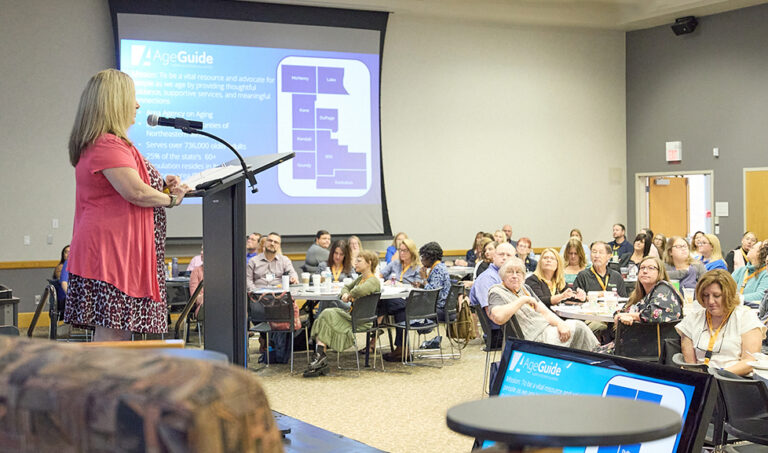More than 55 million people worldwide have dementia, and in the United States, nearly 7 million people have Alzheimer’s disease specifically. The condition profoundly changes the person impacted, as well as their loved ones. Often, people don’t know what to prioritize or where to turn first when navigating through the disease.
In this special section, we asked leading dementia experts from various disciplines about their views on and approaches to dementia care. Read on for answers from:
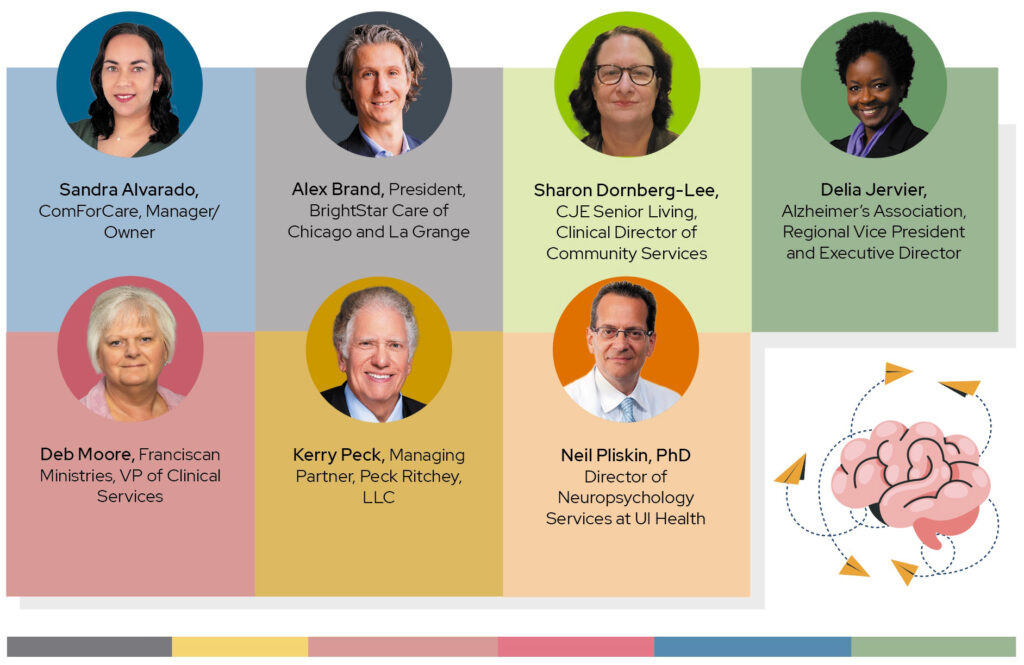
Diagnosis
How do I know if memory loss is dementia or something else?
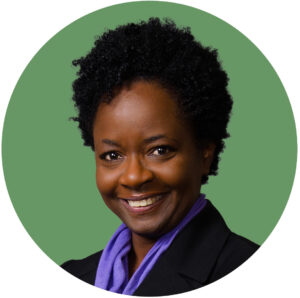
Delia Jervier: While many people experience some changes in memory, thinking, and behavior as they age, cognitive changes that disrupt daily life are not a typical part of aging. If you or someone you know is experiencing memory or thinking problems, it is important to share these concerns with your doctor. Only a full medical evaluation conducted by a licensed physician can determine if symptoms are related to dementia.

Sharon Donberg-Lee: While minor changes in memory are universal as we age, significant changes in memory often require a thorough work up to understand the cause. The primary care physician can provide a referral for a comprehensive, geriatric assessment. This multidisciplinary approach will evaluate medical and psychosocial concerns and lead to a recommended plan of care to address them. Some medications or other medical conditions can mimic dementia, so a thorough assessment is needed to tease out the cause.

Neil Pliskin, PhD: There are many conditions and circumstances that can produce memory loss, ranging from benign and treatable to serious and severe. The first step would be to see your physician (or seek one out) and undergo a complete physical examination with bloodwork. There are numerous systemic illnesses, such as those that affect thyroid for example, or other hormonal functions, sleep disruption and disorders, and even medications that can contribute to memory loss. Additionally, conditions that affect a person’s ability to pay attention can make it harder to learn and remember new information. Likewise, certain types of memory can change as a function of age, and in other circumstances there are modifiable lifestyle factors that can lead to memory improvement. All forms of memory loss are not the same. Your doctor may refer you to a neurologist for further evaluation and you may wish to undergo neuropsychological testing.
When a family member first feels that a loved one’s memory is slipping, what steps should they take?
 Delia Jervier: Various conditions can cause short-term or long-term memory loss and affect thinking or behavior. It can be difficult to know what to do if you’ve noticed changes in yourself or a family member or friend — particularly changes related to memory loss, thinking or behavior. It may just be normal forgetfulness, or it may be something more serious. Assess the situation, start a conversation, discuss seeing a doctor together, and reach out for help.
Delia Jervier: Various conditions can cause short-term or long-term memory loss and affect thinking or behavior. It can be difficult to know what to do if you’ve noticed changes in yourself or a family member or friend — particularly changes related to memory loss, thinking or behavior. It may just be normal forgetfulness, or it may be something more serious. Assess the situation, start a conversation, discuss seeing a doctor together, and reach out for help.
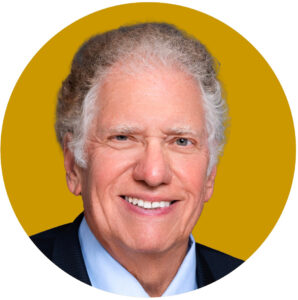 Kerry Peck: When you first suspect a loved one has diminished capacity, you should keep open communication within the family. This will go a long way to prevent suspicion, family disagreements, and potential legal claims down the line. You’ll want to choose the best person to take control of your loved one’s finances. It’s best to find an attorney to help the family draft the necessary documents to protect your loved one, allow someone they trust to make decisions for them, and provide peace of mind for the family. Time is of the essence as your loved one will need to have the capacity to make a will, trust, power of attorney for health care, and power of attorney for property.
Kerry Peck: When you first suspect a loved one has diminished capacity, you should keep open communication within the family. This will go a long way to prevent suspicion, family disagreements, and potential legal claims down the line. You’ll want to choose the best person to take control of your loved one’s finances. It’s best to find an attorney to help the family draft the necessary documents to protect your loved one, allow someone they trust to make decisions for them, and provide peace of mind for the family. Time is of the essence as your loved one will need to have the capacity to make a will, trust, power of attorney for health care, and power of attorney for property.
 Alex Brand: I believe that families who are able to recognize and talk about early warning signs will be better prepared. It’s hard to accept, but ultimately dementia will end up impacting almost every aspect of family life. Denial is a common response but often ends up backfiring and stifles important conversations when there is still time to have them. The best time for a loved one to make the decisions about their health, finances, and legal affairs is when they are healthy and of sound mind. The longer these are put off, the more difficult it becomes.
Alex Brand: I believe that families who are able to recognize and talk about early warning signs will be better prepared. It’s hard to accept, but ultimately dementia will end up impacting almost every aspect of family life. Denial is a common response but often ends up backfiring and stifles important conversations when there is still time to have them. The best time for a loved one to make the decisions about their health, finances, and legal affairs is when they are healthy and of sound mind. The longer these are put off, the more difficult it becomes.
How do I talk to my doctor about memory concerns?
 Deb Moore: It’s important to be open and honest with your physician. Provide examples of what you’re forgetting, how often it’s occurring, and how it’s impacting your day-to-day routine.
Deb Moore: It’s important to be open and honest with your physician. Provide examples of what you’re forgetting, how often it’s occurring, and how it’s impacting your day-to-day routine.
 Delia Jervier: Effective communication with other care team members — particularly healthcare providers — is critical to ensure that the person living with dementia receives the best possible care. The following tips can be helpful as you prepare for a visit with a health care professional:
Delia Jervier: Effective communication with other care team members — particularly healthcare providers — is critical to ensure that the person living with dementia receives the best possible care. The following tips can be helpful as you prepare for a visit with a health care professional:
• Document any changes in your health, including your mood, memory and behaviors.
• Bring a list of your current prescriptions and over-the-counter medications (including any vitamins or supplements).
• Consider bringing your care partner, family member or friend with you.
• Make a list of questions you and/or your care partner wants to ask.
 Neil Pliskin: Having concerns about your memory is very natural as we age and certainly nothing to be ashamed about. I think the straightforward approach is best, by providing some examples to your doctor so they can can understand the type and severity of the memory problems that you’re having. Is it a matter of trouble finding the right word when talking? Is it forgetting or other important dates? Forgetting to pay bills? Or is it that family members complain that you’re repeating yourself? These are concerns that should be discussed with your doctor.
Neil Pliskin: Having concerns about your memory is very natural as we age and certainly nothing to be ashamed about. I think the straightforward approach is best, by providing some examples to your doctor so they can can understand the type and severity of the memory problems that you’re having. Is it a matter of trouble finding the right word when talking? Is it forgetting or other important dates? Forgetting to pay bills? Or is it that family members complain that you’re repeating yourself? These are concerns that should be discussed with your doctor.
Why is it important to get a dementia diagnosis as early as possible?
 Deb Moore: Obtaining an early diagnosis provides time for you to educate yourself and your loved ones about your diagnosis and what to expect over time. This is a time that you can evaluate your goals and wishes while focusing on quality of life.
Deb Moore: Obtaining an early diagnosis provides time for you to educate yourself and your loved ones about your diagnosis and what to expect over time. This is a time that you can evaluate your goals and wishes while focusing on quality of life.
 Delia Jervier: An early diagnosis of Alzheimer’s provides a range of benefits for the individuals who are diagnosed. Getting checked by your doctor can help determine what’s causing symptoms. If Alzheimer’s is the cause, an early diagnosis allows you access to treatment options: Current medications do not cure Alzheimer’s, but two treatments — donanemab (Kisunla) and lecanemab (Leqembi) — demonstrate that removing beta-amyloid, one of the hallmarks of Alzheimer’s disease, from the brain reduces cognitive and functional decline in people living with early Alzheimer’s. Others may help lessen symptoms, such as memory loss and confusion, for a limited time. An early Alzheimer’s diagnosis provides you with a better chance of benefiting from treatment.
Delia Jervier: An early diagnosis of Alzheimer’s provides a range of benefits for the individuals who are diagnosed. Getting checked by your doctor can help determine what’s causing symptoms. If Alzheimer’s is the cause, an early diagnosis allows you access to treatment options: Current medications do not cure Alzheimer’s, but two treatments — donanemab (Kisunla) and lecanemab (Leqembi) — demonstrate that removing beta-amyloid, one of the hallmarks of Alzheimer’s disease, from the brain reduces cognitive and functional decline in people living with early Alzheimer’s. Others may help lessen symptoms, such as memory loss and confusion, for a limited time. An early Alzheimer’s diagnosis provides you with a better chance of benefiting from treatment.
 Sandra Alvarado: Getting an early diagnosis is crucial for collaborative problem-solving, enabling families and care professionals to develop a supportive, person-centered care plan. Programs like DementiaWise, a proprietary training program developed by ComForCare, emphasize that caring for someone with dementia requires teamwork and values insights from those close to the individual. Early diagnosis allows the person with dementia to express their preferences and shape their care plan while still able. This approach gathers unique perspectives, addressing potential hurdles and ensuring consistent techniques that reduce stress. By working together, the network creates a holistic, compassionate care system empowering individuals to live with dignity and connection.
Sandra Alvarado: Getting an early diagnosis is crucial for collaborative problem-solving, enabling families and care professionals to develop a supportive, person-centered care plan. Programs like DementiaWise, a proprietary training program developed by ComForCare, emphasize that caring for someone with dementia requires teamwork and values insights from those close to the individual. Early diagnosis allows the person with dementia to express their preferences and shape their care plan while still able. This approach gathers unique perspectives, addressing potential hurdles and ensuring consistent techniques that reduce stress. By working together, the network creates a holistic, compassionate care system empowering individuals to live with dignity and connection.
Once there’s a diagnosis, then what?
 Delia Jervier: Receiving a diagnosis of Alzheimer’s is never easy — it’s life changing. It is normal to experience a range of emotions. Acknowledging your feelings can be an empowering first step in coping with the challenges ahead. Learning as much as you can about your diagnosis is the first step toward empowering yourself to take control of your life and make decisions that will help you live well with Alzheimer’s for as long as possible.
Delia Jervier: Receiving a diagnosis of Alzheimer’s is never easy — it’s life changing. It is normal to experience a range of emotions. Acknowledging your feelings can be an empowering first step in coping with the challenges ahead. Learning as much as you can about your diagnosis is the first step toward empowering yourself to take control of your life and make decisions that will help you live well with Alzheimer’s for as long as possible.
• Visit the Alzheimer’s Association website: alz.org
• Call the 24/7 Helpline: (800) 272.3900. Care specialists and master’s-level clinicians provide reliable information and support all day, every day.
• Engage with other individuals living with the disease through Alzheimer’s Association ALZConnected, an online networking community. Be sure to visit the I Have Alzheimer’s or Younger-Onset Alzheimer’s Disease message boards.
• Participate in support groups designed specifically for individuals in the early stage.
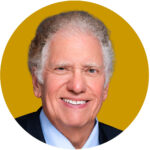 Kerry Peck: Once diagnosed, advanced legal planning should happen in conjunction with obtaining medical care. Legal planning protects the individual’s right to an opinion in the decision-making process and protects the individual’s loved ones from court intervention. Any delay in engaging in legal planning could prevent the individual’s input as cognitive impairment gets worse with time. Anyone diagnosed with dementia must quickly get their health and financial plan in writing while they are still competent to do so.
Kerry Peck: Once diagnosed, advanced legal planning should happen in conjunction with obtaining medical care. Legal planning protects the individual’s right to an opinion in the decision-making process and protects the individual’s loved ones from court intervention. Any delay in engaging in legal planning could prevent the individual’s input as cognitive impairment gets worse with time. Anyone diagnosed with dementia must quickly get their health and financial plan in writing while they are still competent to do so.
Safety and Security
As memory loss becomes more profound, when should an individual be considered not able to make legal decisions for themselves?
 Kerry Peck: In our legal practice, we rely on a client’s treating physician to determine whether that client has the capacity to enter into estate planning and like decisions. It is not uncommon for clients to visit with their regular physician, obtain a note from that physician about their capacity to engage in estate planning, and provide that to our office before we enter into a legal attorney-client relationship. Likewise, when a client correctly executes a power of attorney, they get to choose when it becomes effective — either immediately or when a physician determines it necessary.
Kerry Peck: In our legal practice, we rely on a client’s treating physician to determine whether that client has the capacity to enter into estate planning and like decisions. It is not uncommon for clients to visit with their regular physician, obtain a note from that physician about their capacity to engage in estate planning, and provide that to our office before we enter into a legal attorney-client relationship. Likewise, when a client correctly executes a power of attorney, they get to choose when it becomes effective — either immediately or when a physician determines it necessary.
 Sandra Alvarado: Determining an individual’s ability to make legal decisions, such as managing finances or creating a will, hinges on their mental capacity to understand and communicate choices. An individual may be considered unable to make these decisions if they struggle to recall essential information, have difficulty weighing options, or exhibit confusion and impaired judgment. Capacity assessments are essential during significant decisions or noticeable changes in behavior. Legal safeguards, like appointing a power of attorney, should be established early to protect their interests. Encouraging timely planning protects the individual’s wishes and can alleviate stress for their families during sensitive transitions.
Sandra Alvarado: Determining an individual’s ability to make legal decisions, such as managing finances or creating a will, hinges on their mental capacity to understand and communicate choices. An individual may be considered unable to make these decisions if they struggle to recall essential information, have difficulty weighing options, or exhibit confusion and impaired judgment. Capacity assessments are essential during significant decisions or noticeable changes in behavior. Legal safeguards, like appointing a power of attorney, should be established early to protect their interests. Encouraging timely planning protects the individual’s wishes and can alleviate stress for their families during sensitive transitions.
 Sharon Donberg-Lee: To create a will one must understand who their natural heirs are and have the capacity to understand the approximate value of one’s assets. However, managing daily finances requires the capacity for executive functioning – the ability to understand and retain the series of steps involved in, for example, balancing a checkbook or paying bills. Family members should be alert to signs of confusion such as missing payments as an indication that is time to provide assistance. The older person should remain involved to the maximum extent possible and desired, even while assistance and supervision with these tasks is provided.
Sharon Donberg-Lee: To create a will one must understand who their natural heirs are and have the capacity to understand the approximate value of one’s assets. However, managing daily finances requires the capacity for executive functioning – the ability to understand and retain the series of steps involved in, for example, balancing a checkbook or paying bills. Family members should be alert to signs of confusion such as missing payments as an indication that is time to provide assistance. The older person should remain involved to the maximum extent possible and desired, even while assistance and supervision with these tasks is provided.
What signs should a family member look for as evidence of abuse by a caregiver?
 Deb Moore: Those with dementia may show new signs of being fearful when a caregiver comes into sight. Bruising, scratches or skin lesions, especially on unusual areas of the body could be signs. Additional signs might include the resident looking unkempt or having unexplained weight loss.
Deb Moore: Those with dementia may show new signs of being fearful when a caregiver comes into sight. Bruising, scratches or skin lesions, especially on unusual areas of the body could be signs. Additional signs might include the resident looking unkempt or having unexplained weight loss.
 Kerry Peck: We have seen hundreds of caregiver financial abuse cases come through our doors. Often, you find sums of money missing from an account and when you do some investigating, you notice the caregiver’s name is also on the account, the estate plan has been changed to provide them with a favorable outcome, they’re on the deed to the real estate, there’s a new car in the driveway, and so on. I helped create a law in Illinois so if a caregiver receives in excess of $20,000 in value, it’s presumed to be fraudulent, and the caregiver has the burden of proving it to not be fraudulent.
Kerry Peck: We have seen hundreds of caregiver financial abuse cases come through our doors. Often, you find sums of money missing from an account and when you do some investigating, you notice the caregiver’s name is also on the account, the estate plan has been changed to provide them with a favorable outcome, they’re on the deed to the real estate, there’s a new car in the driveway, and so on. I helped create a law in Illinois so if a caregiver receives in excess of $20,000 in value, it’s presumed to be fraudulent, and the caregiver has the burden of proving it to not be fraudulent.
 Sharon Dornberg-Lee: One should be alert to physical, financial, and behavioral indicators of abuse. Physical signs might include unexplained injuries or weight loss. Financial indicators can include missing items of value, unexplained bank withdrawals, or unpaid bills. The care recipient may appear withdrawn, depressed, anxious, or helpless. It can be difficult to tease out changes attributable to dementia vs. potential caregiver abuse, and expert guidance should be sought where abuse is suspected such as talking to the individual’s physician, calling a trusted social services agency with expertise in this area, or calling the elder abuse hotline in your area to discuss your concerns.
Sharon Dornberg-Lee: One should be alert to physical, financial, and behavioral indicators of abuse. Physical signs might include unexplained injuries or weight loss. Financial indicators can include missing items of value, unexplained bank withdrawals, or unpaid bills. The care recipient may appear withdrawn, depressed, anxious, or helpless. It can be difficult to tease out changes attributable to dementia vs. potential caregiver abuse, and expert guidance should be sought where abuse is suspected such as talking to the individual’s physician, calling a trusted social services agency with expertise in this area, or calling the elder abuse hotline in your area to discuss your concerns.
What type of scams should family members watch out for?
 Kerry Peck: Seniors, and especially those with dementia, are often the target of scams. They’re also more likely to put up with financial exploitation than to report it. Most scams combine financial exploitation with emotional abuse. Often, financial exploitation can involve an abuse of the power of attorney. Perhaps a family member is living off the senior’s money, forcing them to sign a power of attorney granting them the authority to continue the abuse. Additionally, there’s scams that come by telephone call claiming to be a loved one in distress, a text message claiming a package needs additional postage to be delivered, an email with an exclusive offer, a contractor showing up at the door saying the home needs a new roof, and the like. Scams are everywhere.
Kerry Peck: Seniors, and especially those with dementia, are often the target of scams. They’re also more likely to put up with financial exploitation than to report it. Most scams combine financial exploitation with emotional abuse. Often, financial exploitation can involve an abuse of the power of attorney. Perhaps a family member is living off the senior’s money, forcing them to sign a power of attorney granting them the authority to continue the abuse. Additionally, there’s scams that come by telephone call claiming to be a loved one in distress, a text message claiming a package needs additional postage to be delivered, an email with an exclusive offer, a contractor showing up at the door saying the home needs a new roof, and the like. Scams are everywhere.
 Sandra Alvarado: Family members of individuals with memory loss or cognitive impairment must remain vigilant against various scams that target vulnerable populations. Common scams include financial imposters posing as legitimate organizations, romance scams where emotional connections lead to financial requests, and telemarketing schemes that pressure individuals into sharing personal information. Signs of potential scams include urgent demands for payment, unrealistic offers, or lack of documentation. To protect loved ones, families should monitor finances, secure personal information, and assist with technology use. Encouraging open communication about suspicious calls and offers fosters a secure environment, helping to safeguard against exploitation.
Sandra Alvarado: Family members of individuals with memory loss or cognitive impairment must remain vigilant against various scams that target vulnerable populations. Common scams include financial imposters posing as legitimate organizations, romance scams where emotional connections lead to financial requests, and telemarketing schemes that pressure individuals into sharing personal information. Signs of potential scams include urgent demands for payment, unrealistic offers, or lack of documentation. To protect loved ones, families should monitor finances, secure personal information, and assist with technology use. Encouraging open communication about suspicious calls and offers fosters a secure environment, helping to safeguard against exploitation.
 Deb Moore: Those with dementia have increased susceptibility to fraudulent activities. Telemarketers are one of the greatest risks, often requesting bank information from the individual. Door to door salespeople are also frequent scammers requesting to look at something in the resident’s home and stealing items or having them pay for work not needed.
Deb Moore: Those with dementia have increased susceptibility to fraudulent activities. Telemarketers are one of the greatest risks, often requesting bank information from the individual. Door to door salespeople are also frequent scammers requesting to look at something in the resident’s home and stealing items or having them pay for work not needed.
Caregiving
What makes caring for a loved one with cognitive impairment so challenging?
 Sandra Alvarado: Caring for a loved one with cognitive impairment, such as dementia, is both rewarding and challenging, as their needs constantly evolve. Caregivers often face emotional stress from managing confusion, misplaced items, and behavioral changes, leading to feelings of frustration and guilt. Caregiver burnout is a serious risk influenced by isolation and neglecting personal needs. It’s crucial to prioritize self-care and build a support system. By utilizing respite services, joining support groups, and educating oneself about dementia, caregivers can maintain their well-being and continue providing compassionate care while navigating this difficult journey.
Sandra Alvarado: Caring for a loved one with cognitive impairment, such as dementia, is both rewarding and challenging, as their needs constantly evolve. Caregivers often face emotional stress from managing confusion, misplaced items, and behavioral changes, leading to feelings of frustration and guilt. Caregiver burnout is a serious risk influenced by isolation and neglecting personal needs. It’s crucial to prioritize self-care and build a support system. By utilizing respite services, joining support groups, and educating oneself about dementia, caregivers can maintain their well-being and continue providing compassionate care while navigating this difficult journey.
 Sharon Donberg-Lee: When someone has a physical disability, adaptations can often be made to adjust to a “new normal.” In contrast, when a loved one has cognitive impairment, it can feel like losing them, bit by painful bit. A care partner may feel they are losing the relationship itself, leading to anger, fear, loneliness, and anticipatory grief. Additionally, cognitive impairment can be accompanied by challenging behaviors, further complicating daily life. It’s important to access expert care and guidance to address these issues and find ways to be in the present with one’s loved one as long as possible.
Sharon Donberg-Lee: When someone has a physical disability, adaptations can often be made to adjust to a “new normal.” In contrast, when a loved one has cognitive impairment, it can feel like losing them, bit by painful bit. A care partner may feel they are losing the relationship itself, leading to anger, fear, loneliness, and anticipatory grief. Additionally, cognitive impairment can be accompanied by challenging behaviors, further complicating daily life. It’s important to access expert care and guidance to address these issues and find ways to be in the present with one’s loved one as long as possible.
 Alex Brand: The emotional volatility of dementia patients adds complexity to their care. Many dementia patients experience frustration and anger as they become less able to navigate the world on their own. They become irritated with themselves and will frequently lash out against the caregiver who is trying to help. Increased depression and agitation are common, and people with no history of aggression can become sporadically violent. There is also a large variation in cognitive functionality, both through the course of the disease and also on a day-to-day basis: Great days are followed by terrible days for no apparent reason. All of this means that the caregiving is challenging, and a dynamic approach underpinned by patience and empathy are prerequisites for success.
Alex Brand: The emotional volatility of dementia patients adds complexity to their care. Many dementia patients experience frustration and anger as they become less able to navigate the world on their own. They become irritated with themselves and will frequently lash out against the caregiver who is trying to help. Increased depression and agitation are common, and people with no history of aggression can become sporadically violent. There is also a large variation in cognitive functionality, both through the course of the disease and also on a day-to-day basis: Great days are followed by terrible days for no apparent reason. All of this means that the caregiving is challenging, and a dynamic approach underpinned by patience and empathy are prerequisites for success.
 Neil Pliskin: There are many challenges to caring for someone with dementia or cognitive impairment. One of the most difficult challenges is the shift in role that comes with the diagnosis and behavior change that often accompanies dementia. Loved ones you have depended on now have to depend on you. Parents with dementia develop special needs that often become the responsibility of their children, activities of daily living such as finances which would be taken care of by one spouse now have to be cared for by another, and responsibilities for caregivers can become an overwhelming burden. It is especially difficult when an individual with dementia does not [have] outwardly evident signs of the disease. Conversely, it is also extremely difficult to stand by and watch someone near and dear to you undergo such drastic life changes. Importantly, becoming a caregiver requires an amazing amount of patience, as the person with dementia may ask the same question repeatedly and require direction and reassurance that they never needed before. It is important for the caregiver to understand that these changes are not by choice of the individual but most often are part of the disease process.
Neil Pliskin: There are many challenges to caring for someone with dementia or cognitive impairment. One of the most difficult challenges is the shift in role that comes with the diagnosis and behavior change that often accompanies dementia. Loved ones you have depended on now have to depend on you. Parents with dementia develop special needs that often become the responsibility of their children, activities of daily living such as finances which would be taken care of by one spouse now have to be cared for by another, and responsibilities for caregivers can become an overwhelming burden. It is especially difficult when an individual with dementia does not [have] outwardly evident signs of the disease. Conversely, it is also extremely difficult to stand by and watch someone near and dear to you undergo such drastic life changes. Importantly, becoming a caregiver requires an amazing amount of patience, as the person with dementia may ask the same question repeatedly and require direction and reassurance that they never needed before. It is important for the caregiver to understand that these changes are not by choice of the individual but most often are part of the disease process.
How does caring for someone with dementia differ from other types of caregiving?
 Deb Moore: Every day is a new day. Schedules and plans that you may be able to use with other residents probably will not work when caring for those with dementia. Flexibility, patience, respect and knowledge are key elements in caring for a resident with dementia.
Deb Moore: Every day is a new day. Schedules and plans that you may be able to use with other residents probably will not work when caring for those with dementia. Flexibility, patience, respect and knowledge are key elements in caring for a resident with dementia.
 Sandra Alvarado: We care for individuals living with dementia by taking a person-centered approach that focuses on their needs, preferences, and abilities. Specialized care strategies can enhance quality of life while easing the caregiving process. Key strategies include building a trusting relationship by learning about their history and demonstrating empathy. Maintaining a calm and structured environment helps reduce confusion, while positive communication, using clear language and nonverbal cues, fosters connection. Engaging in purposeful activities tailored to their interests promotes independence. Additionally, prioritizing physical health through nutrition and hygiene is essential. Supporting emotional well-being and celebrating small wins enhances dignity and quality of life.
Sandra Alvarado: We care for individuals living with dementia by taking a person-centered approach that focuses on their needs, preferences, and abilities. Specialized care strategies can enhance quality of life while easing the caregiving process. Key strategies include building a trusting relationship by learning about their history and demonstrating empathy. Maintaining a calm and structured environment helps reduce confusion, while positive communication, using clear language and nonverbal cues, fosters connection. Engaging in purposeful activities tailored to their interests promotes independence. Additionally, prioritizing physical health through nutrition and hygiene is essential. Supporting emotional well-being and celebrating small wins enhances dignity and quality of life.
 Alex Brand: Caring for someone with dementia is different because it requires a complete shift in the mindset of the caregivers. Dementia caregiving is not just about helping with the tasks of daily living but about helping the sick person navigate the altered reality in which they find themselves. This can be a scary and confusing place, but good dementia caregivers can bridge the two worlds and act as a guide and translator. Obviously, this is a much different skillset than helping someone get dressed or cook breakfast.
Alex Brand: Caring for someone with dementia is different because it requires a complete shift in the mindset of the caregivers. Dementia caregiving is not just about helping with the tasks of daily living but about helping the sick person navigate the altered reality in which they find themselves. This can be a scary and confusing place, but good dementia caregivers can bridge the two worlds and act as a guide and translator. Obviously, this is a much different skillset than helping someone get dressed or cook breakfast.
Which resources do you point caregivers toward?
 Neil Pliskin: Here are some very useful resources for patients and caregivers that I routinely provide: Family members needing additional information regarding dementia can contact the Alzheimer’s Disease and Related Disorders Association at (800) 272-3900 or visit the website online at alz.org. This organization provides educational and referral resources for various types of dementia. Information can be obtained regarding management strategies in caring for an individual with dementia.
Neil Pliskin: Here are some very useful resources for patients and caregivers that I routinely provide: Family members needing additional information regarding dementia can contact the Alzheimer’s Disease and Related Disorders Association at (800) 272-3900 or visit the website online at alz.org. This organization provides educational and referral resources for various types of dementia. Information can be obtained regarding management strategies in caring for an individual with dementia.
The Greater Illinois Chapter of the Alzheimer’s Association, 8430 West Bryn Mawr, Suite 800, in Chicago can provide further information about family support groups in the area, home health services, and respite services. Information is also available at their website: alz.org/illinois
The National Adult Day Services Association (formerly a part of the National Council on Aging) can be contacted for information about community-based programs, including adult day care and respite services. They can be contacted at (877) 745-1440, or information is available at nadsa.org.
The Family Caregiver Alliance website also has helpful information: caregiver.org/caregiver/jsp/home.jsp
Additional support programs to help caregivers who need respite are Space and Grace and Memory Cafes.
 Alex Brand: There are many resources for dementia caregiving, but I think conversations with someone who has been a dementia caregiver can be very insightful. In addition, I would encourage dementia caregivers to seek out resources for their own health and wellbeing. This kind of caregiving is extremely taxing and made even more so if the caregiver is a family member working through their own sense of loss. Caregiver support groups, faith-based institutions, family, and friends can all play an important role in keeping the caregiver healthy. If they are not able to maintain their own mental and physical health, they will eventually burn out in their role and lose the patience and empathy that is needed.
Alex Brand: There are many resources for dementia caregiving, but I think conversations with someone who has been a dementia caregiver can be very insightful. In addition, I would encourage dementia caregivers to seek out resources for their own health and wellbeing. This kind of caregiving is extremely taxing and made even more so if the caregiver is a family member working through their own sense of loss. Caregiver support groups, faith-based institutions, family, and friends can all play an important role in keeping the caregiver healthy. If they are not able to maintain their own mental and physical health, they will eventually burn out in their role and lose the patience and empathy that is needed.




